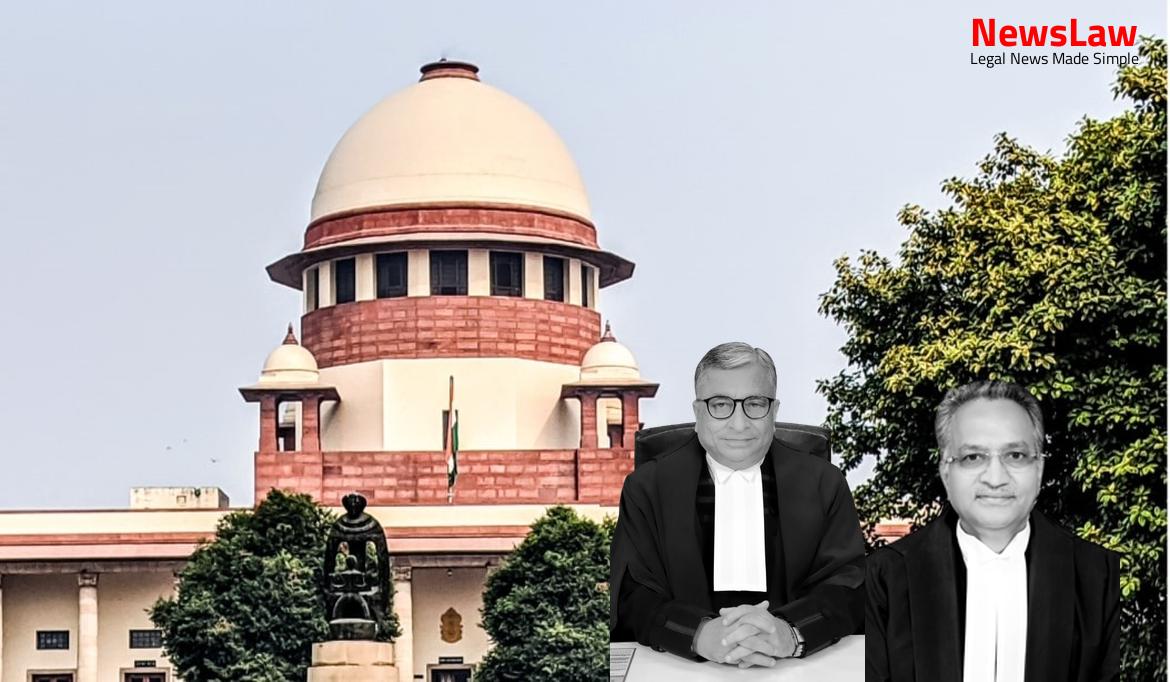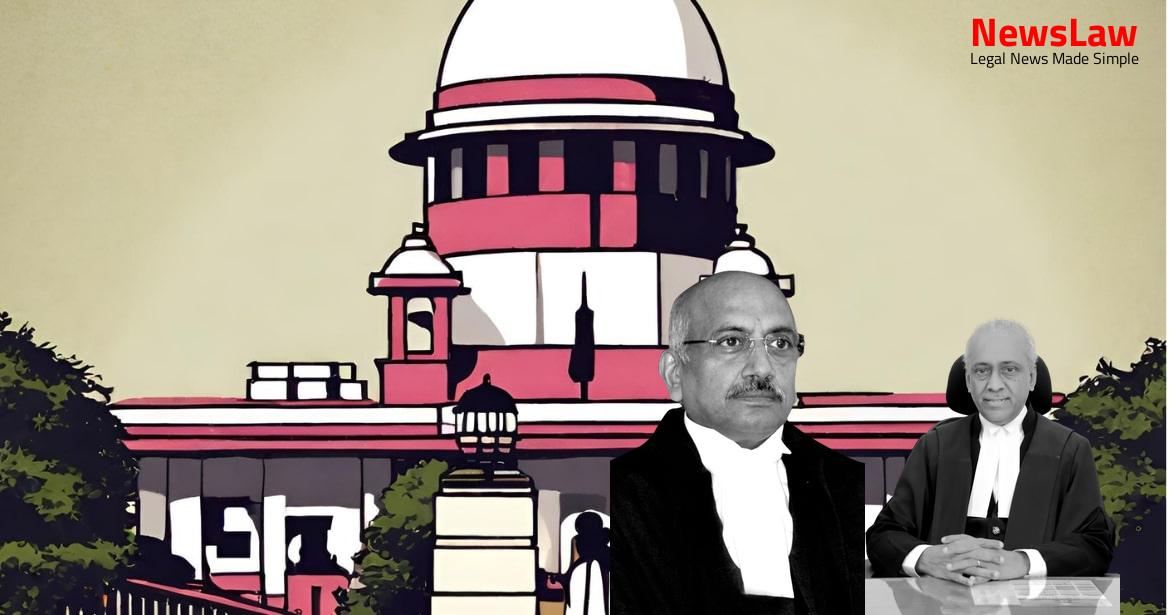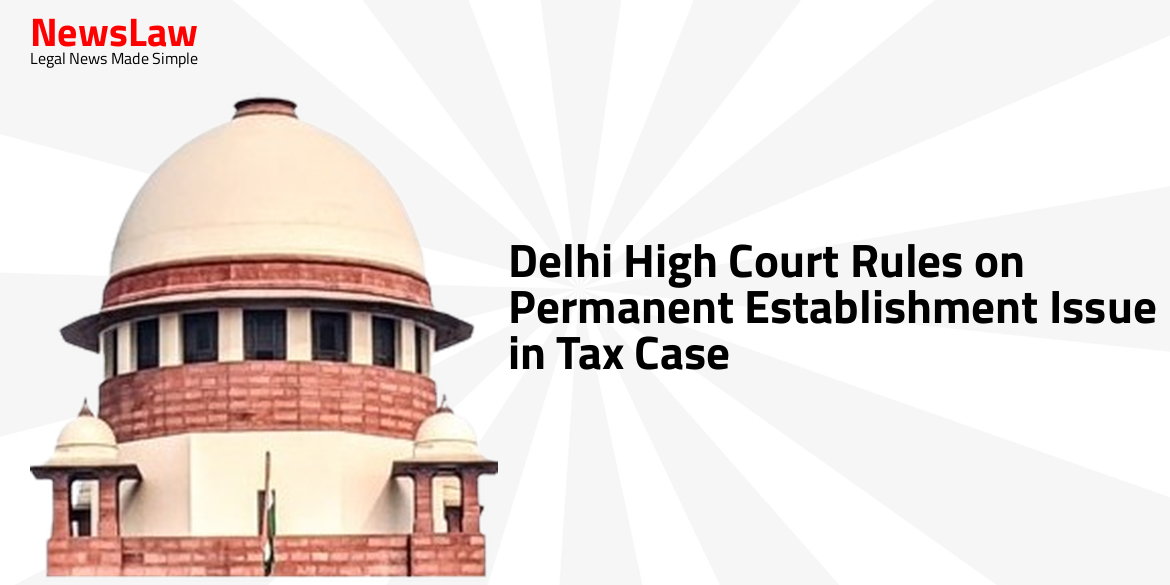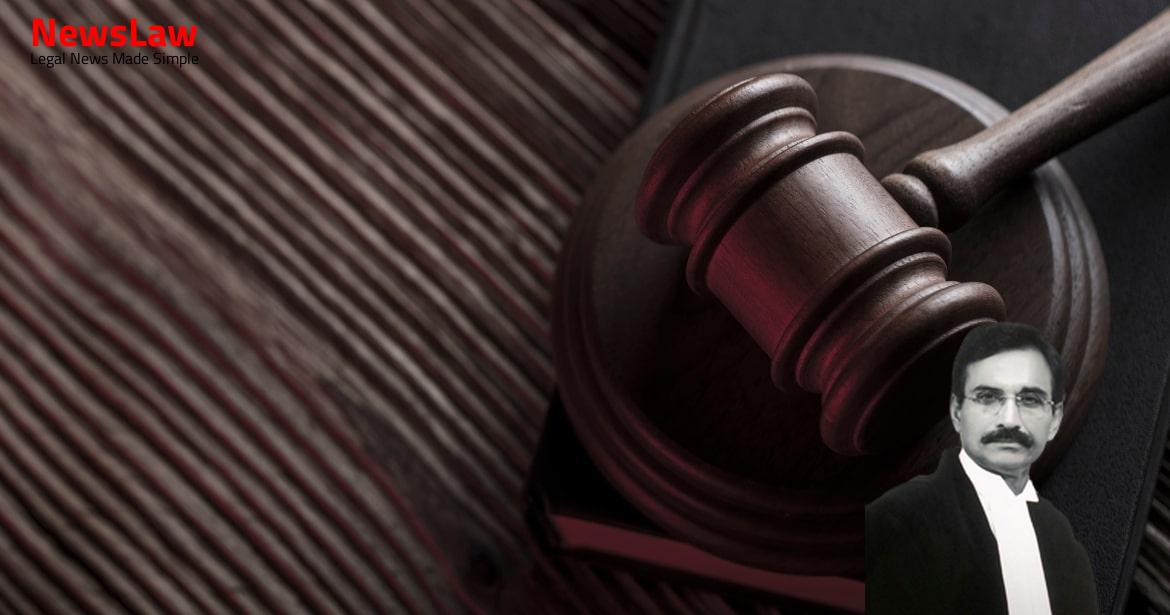The case delves into the autonomy of private unaided schools in determining school fees, challenging the validity of regulatory measures under the Constitution. The court’s legal analysis focuses on the balance between state regulation and educational institutions’ autonomy, emphasizing the constitutional framework at play.
Facts
- Six appeals from a common judgment dated 14.08.2019 by the High Court of Judicature for Rajasthan at Jodhpur.
- Two appeals against the judgment dated 11.02.2020 of the Jaipur Bench of the same High Court.
- Five parents appointed as SLFC members are chosen by draw of lots from willing parents of wards in schools, including those availing free education under the Right of Children to Free and Compulsory Education Act, 2009.
- Parents of wards availing free education have no stakes in the determination of school fees.
- The appellants, Management(s) of private unaided schools in Rajasthan, challenged the validity of the Rajasthan Schools (Regulation of Fee) Act, 2016 and the Rules framed thereunder.
- The challenge specifically focused on certain sections of the Act and Rules which were alleged to be ultra vires the Constitution and in violation of Article 19(1)(g) of the Constitution of India.
- The second set of appeals involved four appeals by the same Management(s) of private unaided schools in Rajasthan against orders regarding deferment and reduction of school fees due to the pandemic lockdown.
- The issues in all appeals concerned around 36,000 private unaided schools, including 220 minority private unaided schools in Rajasthan, governed by the provisions of the Act of 2016.
- All appeals were clubbed together and heard analogously.
Also Read: Legal Analysis on Diplomatic Immunity Exception Case
Issue
- The challenge is to the provisions of the Act of 2016 and Rules of 2017 being violative of rights guaranteed under Article 19(1)(g) of the Constitution.
- The issue concerns the autonomy of private unaided schools to determine school fees.
- It is argued that restrictions on determining school fees are arbitrary and unreasonable.
- The constitution of the School Level Fee Committee (SLFC) is imbalanced, with only one representative from school management against eight others.
- This imbalance limits the effective control of the management in school affairs, particularly in determining school fees.
Also Read: Land Ownership Dispute Legal Analysis
Arguments
- The petitioners argue that the impugned Act of 2016 imposes unreasonable restrictions on their autonomy as educational institutions.
- They claim that coercive measures and penal provisions in the Statute are necessary for regulatory purposes and not excessive restrictions.
- The petitioners’ complaint about the process for determining school fees is dismissed as unfounded.
- There is no mechanism provided for the recovery of school fees once they are determined under the Act of 2016.
- The State’s regulation on minority rights must pass the tests of reasonableness and educational effectiveness.
- The State’s authority exercised under the Act of 2005 is deemed legitimate and necessary, especially amidst a pandemic situation.
- The petitioners challenge the Rules on grounds of unconstitutionality, but it is deemed unsustainable by the State.
- The impugned Act of 2016 is held not to violate Article 19(1)(g) of the Constitution according to the judgement of the High Court.
- The petitioners’ arguments against the Act of 2016 on various grounds are dismissed by the High Court.
- Regulatory measures under the Act are considered essential by the State for preventing profiteering and maintaining educational standards.
- The Division Bench in the High Court found no infringement on the autonomy of educational institutions by the State.
- The impugned Act does not explicitly mention prevention of profiteering or capitation fee but is not considered constitutionally suspect.
- The petitioners argue that the Act is unworkable and violates their fundamental rights under Article 19(1)(g) of the Constitution.
- The State is asserted to have a legitimate interest in regulating school fees and providing care to citizens under its parens patriae powers.
- The provision of SLFC and its authority over determining school fees is challenged by the petitioners as compromising the autonomy of educational institutions.
- The petitioners argue that the Act of 2016 does not serve its intended purpose and is disproportionately restrictive on educational institutions.
- The petitioners claim that the legislation field for school fee regulation is already occupied by the Parliament, rendering the State’s law redundant.
- The State defends the Act of 2016 as regulatory with autonomy for educational institutions within the framework of the SLFC’s approval.
- The petitioners express concerns about the wide powers granted to regulatory committees and the potential impact on school finances and growth.
- The autonomy of private unaided schools in determining fees is emphasized by the petitioners as crucial for their operation and development.
- The petitioners refer to a Delhi High Court case to argue against disapproval of fee hikes in private unaided educational institutions.
- The petitioners challenge the order issued by the Director, Secondary Education as violating constitutional rights under Article 19(1)(g) and Article 30(1).
- The dispensation provided in the order dated 28.10.2020 is argued to be necessary for mitigating circumstances during the pandemic.
- The petitioners find fault in the factors considered for determining school fees under the Act of 2016, claiming them to be vague and irrelevant.
- The argument of the learned counsel for the petitioners challenging the constitutionality of the impugned Act is deemed unsubstantial.
- Various written submissions from different parties, including an intervener and a parent from a private school in Punjab, have been considered.
- One individual has urged the court to uphold the previous judgment and order of the High Court of Rajasthan while suggesting further reduction of school fees below the specified percentage.
- The counsel for the State has proposed modulation of relief, stating that previous notifications have become obsolete and that academic matters are not within the jurisdiction of Constitutional Courts.
- There is a suggestion that no fees should be charged for the period schools were closed in the academic session 2020-21 to prevent profiteering by school management.
- The State emphasizes that the issue in the appeals is centered around the fairness of the order dated 28.10.2020, and argues that the direction to settle outstanding dues towards unit costs within a month is irrelevant and should be recalled.
Also Read: Legal Analysis: Forfeiture of Properties under the 1976 Act
Analysis
- The private unaided school management must have absolute autonomy to determine the school fees.
- The setting up of External Fee Regulatory Authority is consistent with the jurisprudential exposition of the Court.
- The Government can regulate fees to prevent profiteering and charging of capitation fees.
- Regulatory measures in education are necessary for social transformation and the betterment of society.
- The regulatory framework ensures that private unaided schools play a vital role in spreading education and not solely for profit.
- The government can issue directions to institutions charging excessive fees to avoid profiteering and commercialization.
- The fee must be determined based on factors mentioned in the 2007 Act and should not lead to profiteering or commercialization.
- A regulatory mechanism for education aids in achieving an egalitarian and prosperous society.
- Factors for determination of fee as per Section 8 of the Act
- Additional factors for determination of fee as per Rule 10 of the Rules of 2017
- Definition of private school as per Section 2(p)
- Formation of Parent-Teachers Association as per Section 4
- Definition of disaster management as per Section 2(e)
- Powers and functions of State Authority as per Section 18
- Act of 2005 having overriding effect as per Section 72
- Definition of fee as per Section 2(h)
- Formation and functioning guidelines of School Level Fee Committee as per Section 7
- State Government’s measures for disaster management as per Section 38
- Provisions for State Plan for disaster management as per Section 23
- Power to take special measures and specify regulations for epidemic disease as per Section 4
- Quantum of deduction from annual school fees limited to 15% despite school management willing to provide 25% scholarship.
- Decision made to avoid unnecessary litigation and provide finality to the issue of school fees for academic year 2020-21.
- High Court’s conclusion upholding the validity of the Act of 2016 and Rules but reading down certain sections.
- No necessity to discuss written submission as it pertains to private unaided schools in Rajasthan, not the current appeals.
- Reiterated direction for State of Rajasthan to pay outstanding dues to private unaided schools before the end of July 2021.
- Not delved into each reported decision as it was unnecessary for the view taken in the judgment.
- All contempt petitions related to impugned judgment being disposed of as it is overturned by this decision.
Decision
- Schools are directed to collect 70% of tuition fees for the period from March 2020 in three installments
- Deferred fees for the session 2020-21 can be charged after the deferment period is over
- Students in non-government schools can obtain Transfer Certificates after depositing fees of the previous session and obtaining a no-dues certificate
- Fees can be paid in six monthly installments from March 5, 2021, to August 5, 2021, equivalent to the fees amount for the academic year 2019-2020
- Students cannot be debarred from classes or results withheld for non-payment of fees
- Parents facing difficulty in fee payment can approach schools for consideration on a case-to-case basis
- Contempt petitions before the High Court are disposed of
- Fees for academic year 2021-2022 are to be paid as per the management/school notification
- No student will be withheld from Board exams for non-payment of fees with undertaking from parent/student
- A committee is constituted to give suggestions on fee recovery by private/non-government educational institutions
- Fees for the applicable period after March 15 will not be charged by non-government schools
- Orders passed as interim arrangements subject to final adjudication
- Non-government schools are to pay prescribed salary to teachers and prevent retrenchment due to COVID-19
- Government dues towards unaided schools to be settled within a specified timeframe
- Compliance to be ensured as per Chief Minister’s directive on fee collection by recognized non-government schools
Case Title: GANDHI SEWA SADAN RAJSMAND Vs. STATE OF RAJASTHAN (2021 INSC 281)
Case Number: C.A. No.-001713-001722 / 2021



